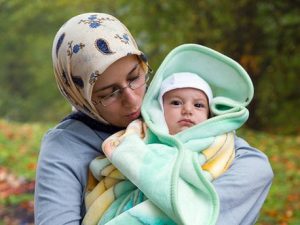
Defiant women, some “worth 100 men” are reshaping the Arab world in grassroots activism.
While news of a minority of Muslim women in burkas continues to spread islamophobia in the West, a growing number of Arab women (veiled or otherwise) are shedding their typical conservative image and gaining more visibility in the pro-democracy protests around the region. Western liberal understanding of feminism may prevent many from acknowledging any real progress, but a new role for Arab women in grass root activism is plain to see.
From hunger fasts in Bahrain, to women’s only marches in Yemen, to Asmaa Mahfouz (known as “a woman worth 100 men”), whose anti-Mubarak video helped trigger the revolution against autocratic rule, to the defiant Iman Al-Obeidi in Libya, women are playing as important role in the political and social transformations reshaping the Arab world.
The link between social and environmental justice
For a lot of these women fighting social justice and human rights, the link between social and environmental justice is not recognized. Yet, as Melinda Kramer, co-founder of the Berkeley-based Women’s Global Green Action Network, explains “women are inextricably linked to issues of environmental sustainability…as mothers, as caretakers, as food producers, as consumers and as nurturers.”
Research reports from around the world confirm that the majority of those affected by climate-related disasters in developing economies have been women. Women continue to be more severely affected by pollution, deforestation, water shortages, increased food costs, exposure to toxic chemicals, and other harmful environmental practices resulting in many adverse affects, including poor health and high infant mortality.
Women in environmental activism
While natural disasters affect women most, inspiring examples from around the world shows another trend.
Indigenous women who are aware about nature conservancy and environmental issues have been able to make significant difference to the environment in tangible ways, for example in water conservation, waste management, energy efficiency at home, and family planning. (See the Green Prophet story on the illiterate, barefoot women in Jordan who have brought solar power to their villages). Women environmental activists have also proven to help change the status of other women, particularly in rural communities, creating empowerment opportunities beyond the environmental benefits.
Professionals in clean tech too
As reported by Green Prophet, several women groups through out the Gulf are taking a more active role in environmental protection. More recently, Mashael bint Mohammed Saud Abdurrahman of King Abdulaziz City for Science and Technology (KACST) in Saudi Arabia won the United Nations’ Water for Life, Best Practice Award.
Although still a minority, the number of women scientists working on areas of sustainable development, at KACST’s and other research institutes in the region, are on the increase.
But as experience from the rest of the world shows, while most women recognized for their environmental accomplishments spent years doing research and studying the issues, the grassroots movement are often led by “accidental environmentalists” who knew little about environmental issues until they experience the negative health effect of environmental degradation on them, their homes or their communities. Mobilizing these women to become female grassroots environmental advocates requires visionary leadership as well as local organizations to empower them with information, training and resources.
As Arab women forge their own path forward in their own unique way, they should widen the debate and be at the forefront of fighting for environmental change in order to ensure their own health, and that of their family and communities.
Read more on women for green change:
Bedouin Women Solar Power A Village in Jordan
Harassmap Lets Women Report Abuse in Cairo
Saudi Women Fighting for the Environment
Jewish Women For the Environment (America)
:: Image via Barefoot College. The College trains poor, rural women to become Barefoot Solar Engineers who solar electrify their own communities. Barefoot Solar Engineers from 32 countries have been trained by the College since 2004.




Ok, guys! You have had your chance and made a real mess of it! Now let the women take charge!